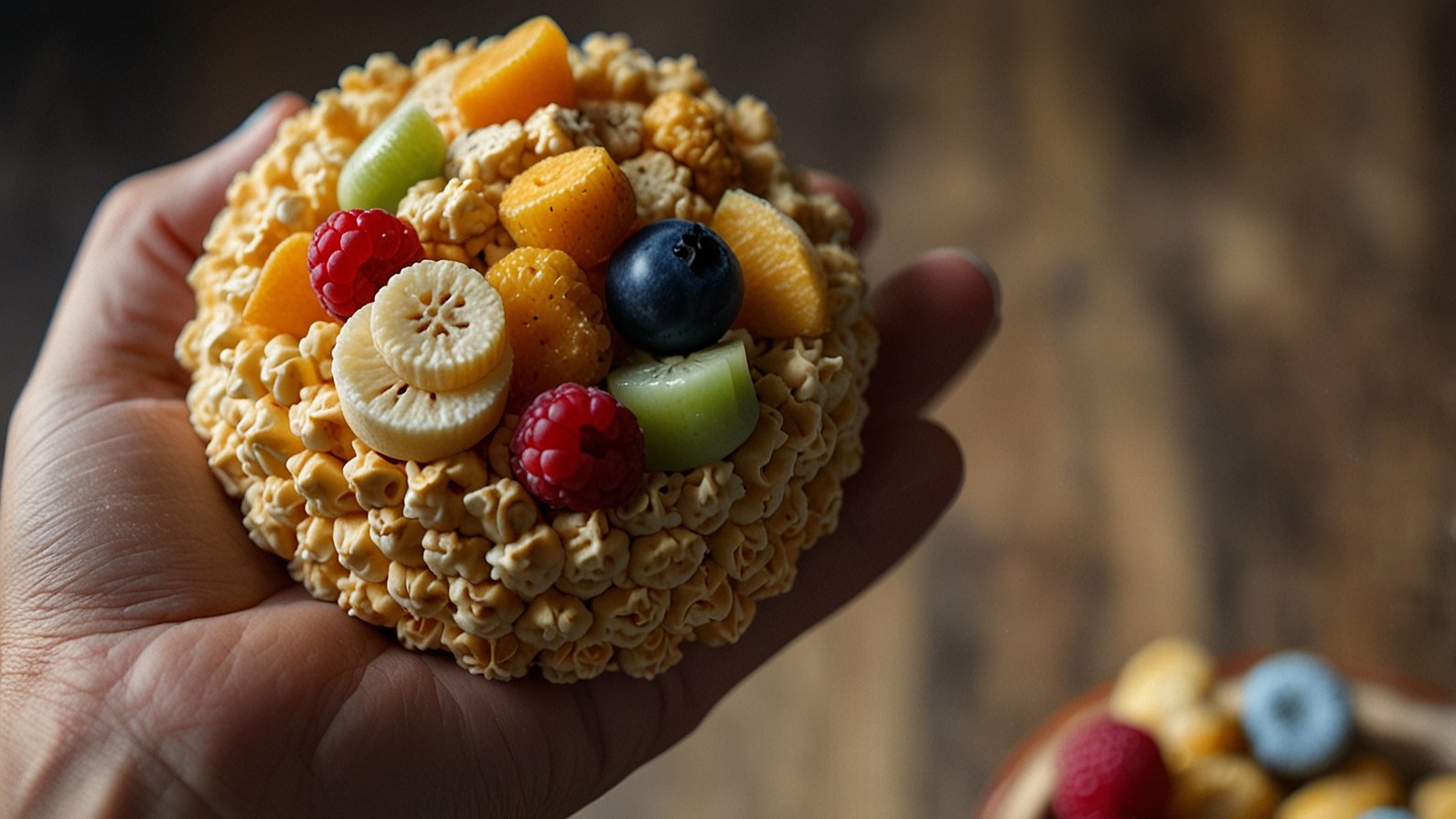If you’ve ever scanned a skincare ingredient list and felt that flicker of concern at seeing “alcohol,” you’re not alone. Most of us have been conditioned to think all alcohols are skin saboteurs—the stuff that dries out your complexion and leaves your skin barrier begging for mercy.
But what if I told you that one particular alcohol is actually working behind the scenes to protect your products and your skin? That it occurs naturally in some of your favorite foods and fragrances? And that without it, your luxurious serums and creams could turn into science experiments growing mold and bacteria?
Let’s pull back the curtain on benzyl alcohol in skincare—the misunderstood multitasker that plays a crucial role in product safety, stability, and performance. As we’ll explore, this ingredient is far from the skin villain it’s sometimes made out to be, especially when formulated correctly by experienced manufacturers.
What Exactly Is Benzyl Alcohol Anyway?
Before we dive too deep, let’s get one thing straight: not all alcohols are created equal. Think of the alcohol family like the automotive world—you’ve everything from rugged pickup trucks to sleek electric sedans. They all have wheels and engines, but they serve dramatically different purposes.
Benzyl alcohol is what’s known as an aromatic alcohol. Unlike the drying denatured alcohols (alcohol denat, isopropyl alcohol) that give alcohol a bad name, benzyl alcohol is typically derived from natural sources. It’s found naturally in certain plants and fruits, as well as in essential oils like jasmine, hyacinth, and lemon oil .
In its pure form, it’s a colorless liquid with a mild, pleasant aroma—which explains why it’s been used for decades as a flavoring agent in foods like chocolate, breath mints, and chewing gum . But its culinary roots are only part of the story. In skincare, benzyl alcohol plays several critical roles that make it invaluable to product developers and manufacturers.
The “Bad Alcohols” vs. The “Good Alcohols”
Here’s where things get interesting. The skincare world is full of alcohol confusion, so let me set the record straight:
- The “bad alcohols” (denatured alcohol, isopropyl alcohol, SD alcohol) can indeed strip the skin of natural oils, damage the skin barrier, and cause irritation with prolonged use .
- The “good alcohols” include fatty alcohols (cetyl, stearyl, cetearyl) that actually moisturize and soften skin, and aromatic alcohols like benzyl alcohol that serve as preservatives and solvents .
See the pattern? It’s not about the alcohol label—it’s about the specific type and how it behaves in formulations.
The Multifaceted Roles of Benzyl Alcohol in Skincare
So what exactly does benzyl alcohol do in your skincare products? Think of it as the backstage crew at a theater production—you might not see them, but without them, the show couldn’t go on.
As a Preservative: The Microbial Bodyguard
This is perhaps benzyl alcohol’s most critical function. Any skincare product containing water is a potential playground for bacteria, yeast, and mold. Without an effective preservative system, your luxurious face cream could become a petri dish in just a few weeks.
Benzyl alcohol steps in as what scientists call a broad-spectrum preservative. Its antimicrobial and antifungal properties prevent microorganisms from multiplying in your products . This isn’t just about product shelf life—it’s about safety. Contaminated skincare products can cause infections, breakouts, and skin reactions.
Considering most of us store our skincare in warm, humid bathrooms (the perfect breeding ground for microbes), the importance of effective preservation can’t be overstated.
As a Solvent: The Universal Translator
In formulation chemistry, a solvent is a substance that helps dissolve other ingredients without changing their fundamental properties. Benzyl alcohol excels here—it helps break down active ingredients into smaller particles so they can penetrate more effectively into your skin .
Think of it like this: if vitamin C or retinol are the star players, benzyl alcohol is the coach who ensures they get onto the field and into the game. Without effective solvents, many of skincare’s most celebrated ingredients would just sit on your skin’s surface without delivering their promised benefits.
As a Texture Enhancer: The Sensory Artist
Here’s something most consumers don’t realize—benzyl alcohol contributes to that luxurious, silky texture you love in your serums and creams. It functions as what formulators call a “slip agent,” giving products that light, spreadable consistency that feels so satisfying to apply .
It’s the difference between a product that drags on your skin versus one that glides effortlessly. That sensory experience isn’t just frivolous—it enhances product application and ensures you use the right amount without tugging at delicate facial skin.
Is Benzyl Alcohol Actually Safe for Skin? Let’s Look at the Science
This is the million-dollar question, and fortunately, we have clear answers from multiple regulatory bodies and scientific reviews.
The U.S. Food and Drug Administration (FDA) has deemed benzyl alcohol safe for a variety of uses, including as a food additive and in cosmetics and skincare products . The Cosmetic Ingredient Review expert panel—the group that assesses cosmetic ingredient safety—has concluded that benzyl alcohol is safe in cosmetic formulations at concentrations up to 5% .
At concentrations higher than 5%, some people might experience non-allergic reactions like temporary redness or itching, but these are almost always superficial and temporary . That’s why reputable manufacturers carefully formulate within established safety parameters.
What About Sensitive Skin?
If you have sensitive skin, you might understandably be more cautious about any ingredient. The good news is that benzyl alcohol is generally well-tolerated even by sensitive skin types when used in typical concentrations (1-3%) found in most skincare products .
That said, if you know you have particularly reactive skin, it’s always wise to perform a patch test with any new product. Apply a small amount to your inner arm or behind your ear for a few days to see how your skin responds before applying it to your face.
The Comedogenicity Question
Here’s more good news: benzyl alcohol is considered non-comedogenic, meaning it won’t clog your pores . So if you’re prone to breakouts, this isn’t an ingredient you need to stress about on that front.
Benzyl Alcohol in Professional Skincare Manufacturing
Now, let’s shift gears to how this ingredient fits into the larger context of professional skincare manufacturing. At facilities like Zicail, with over 31 years of industry experience, ingredients like benzyl alcohol are selected and incorporated with precision and purpose .
The Precision of Professional Formulation
There’s a world of difference between how amateur formulators and established manufacturers approach ingredients. When Zicail’s R&D team develops a new formulation, they’re not just throwing ingredients together—they’re creating a delicate balance where each component serves a specific function while maintaining the product’s safety, stability, and efficacy.
Benzyl alcohol might be included in a formula for its preservative properties, but the formulation team must also consider how it interacts with other ingredients, its impact on the final product texture, and of course, maintaining concentrations within the safety guidelines.
Quality Control and Certification Matters
This is where manufacturing credentials become crucial. Reputable manufacturers like Zicail operate facilities that adhere to Good Manufacturing Practices (GMP) and often hold multiple international certifications .
What does this mean in practical terms? It means that when they include an ingredient like benzyl alcohol in a formulation, they’re:
- Sourcing high-quality raw materials from trusted suppliers
- Precisely weighing and measuring each component
- Conducting stability testing to ensure the preservative system remains effective
- Performing thorough product testing before release
This level of quality control is what separates professional skincare manufacturing from amateur mixing—and it’s why brands looking to create their own skincare lines should always partner with established, certified manufacturers.
Benzyl Alcohol in Private Label and Custom Formulations
For entrepreneurs and established brands looking to develop their own skincare lines, understanding ingredients like benzyl alcohol is crucial—but you don’t need to be a cosmetic chemist to create effective, safe products. That’s where experienced manufacturers become invaluable partners.
The Private Label Advantage
When you work with a manufacturer like Zicail for private label skincare, you’re leveraging their decades of formulation expertise . They’ve already done the heavy lifting of creating stable, effective formulations with appropriate preservative systems.
Their team can guide you on everything from selecting the right base formulations for your target market to customizing aspects like scent, texture, and packaging. Want a natural fragrance instead of a synthetic one? Prefer airless pumps over jars? They can make it happen while ensuring the preservative system remains effective .
Addressing the “Clean Beauty” Conversation
In today’s market, many brands are navigating the “clean beauty” landscape, which often involves scrutinizing ingredient lists. A seasoned manufacturer can help you balance marketing preferences with formulation necessities.
For instance, while some brands might initially want to avoid all alcohols, an educated manufacturer can explain the functional role of benzyl alcohol and why removing it could compromise product safety. They might suggest alternative preservative systems if needed, but can provide the technical backing to make informed decisions.
How Benzyl Alcohol Compares to Other Common Skincare Ingredients
Table: Alcohols in Skincare – The Good, The Bad, and The Misunderstood
| Ingredient | Primary Function | Skin Impact | Commonly Found In |
| Benzyl Alcohol | Preservative, solvent, texture enhancer | Generally well-tolerated, non-drying at proper concentrations | Creams, lotions, serums, fragrances |
| Fatty Alcohols (Cetyl, Stearyl) | Emollient, thickener | Moisturizing, softening, very low irritation potential | Rich creams, lotions, conditioners |
| Denatured Alcohol (Alcohol Denat) | Quick-drying solvent, astringent | Can be drying and irritating with prolonged use | Acne treatments, quick-dry products |
| Ethanol | Solvent, antimicrobial | Can be drying depending on concentration | Toners, astringents, sanitizers |
The Environmental and Sustainability Angle
Today’s conscious consumers aren’t just concerned about what goes on their skin—they care about environmental impact too. Here’s where manufacturers like Zicail are stepping up, incorporating sustainable practices across their operations, from responsibly sourced ingredients to eco-friendly packaging options .
While benzyl alcohol itself is typically synthetically produced for cosmetic use (though it can be derived from natural sources), its inclusion in formulations can align with sustainability goals when manufacturers prioritize environmental responsibility throughout the production process.
The Final Word on Benzyl Alcohol in Skincare
So, where does this leave us in the great benzyl alcohol debate? Honestly, this is one of those ingredients that deserves a reputation rehabilitation.
Far from being a skin villain, benzyl alcohol is a multifunctional workhorse that helps keep our products safe, stable, and effective. It’s the reason your favorite serum doesn’t grow mold after a few weeks, and why that luxurious cream glides so smoothly across your skin.
The truth is, sophisticated skincare requires sophisticated ingredients—and benzyl alcohol is definitely one of them. When formulated correctly by experienced manufacturers who understand proper concentrations and quality control, it’s an ingredient you can feel comfortable having in your products.
At the end of the day, context matters more than almost anything else in skincare formulation. Is the product well-formulated? Is the manufacturer reputable? Are ingredients used at appropriate concentrations? For benzyl alcohol, the answers to these questions make all the difference.
The next time you spot benzyl alcohol on an ingredient label, instead of alarm, you might feel appreciation for this unsung hero working behind the scenes to protect your products and your skin. Now that’s something worth raising a glass to—no matter what kind of alcohol is in it.
YOU MAY ALSO LIKE: SkinPres T: Unlock Your Most Radiant Skin Yet











